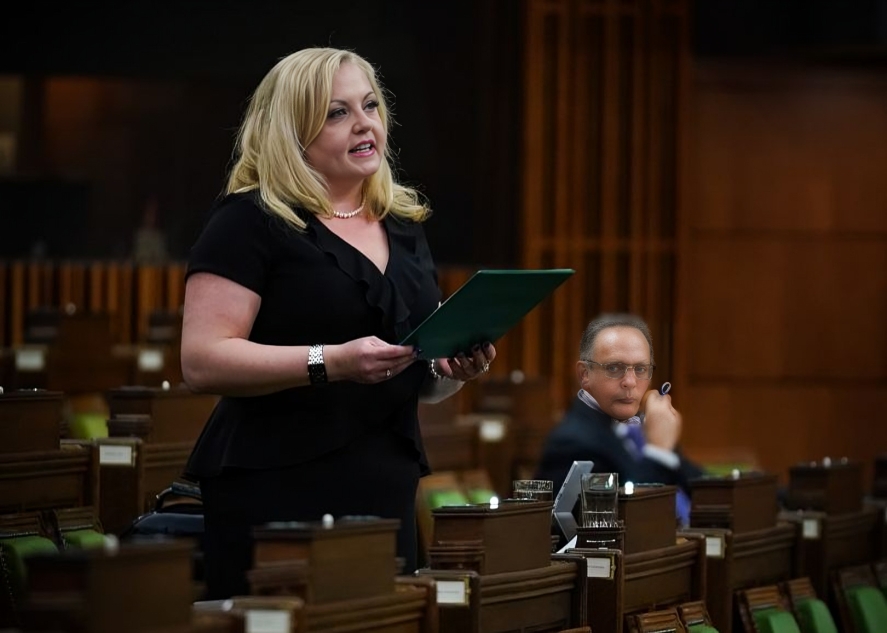- 09:57Trump's Return to Power: Promises and Challenges Ahead
- 09:22Morocco's Unyielding Commitment to Its Territorial Integrity in the Sahara
- 08:48Anticipating Change: U.S. Administration Braces for Migrant Influx Ahead of Trump Presidency
- 08:10Urgent Evacuations as Mountain Fire Rages in Ventura County
- 07:34Drought Devastates Amazon Basin: Over 420,000 Children in Crisis
- 18:05Harris Expected to Concede 2024 Presidential Race to Trump in Historic Address
- 17:30Kashmir Assembly Advocates for Restoration of Autonomy Amidst Political Turmoil
- 16:50H.M. the King Mohammed VI conveys congratulations to Mr. Donald Trump on his election as President of the United States
- 16:15The Unfolding Drama of Trump's Campaign: Key Moments That Shaped a Controversial Return
Follow us on Facebook
The Brewing Battle Over Plastic Pollution: A Catalyst for Environmental Discourse
In a bold move that has sparked debate, Conservative MP Lianne Rood from Lambton, Kent, Middlesex made a public stand against Tim Hortons' trial of paper lids. Declaring her refusal to purchase coffee from the iconic chain until they discontinue the use of the "woke paper lids that dissolve in your mouth," Rood's statement ignited a conversation about plastic pollution and its potential impact on the environment.

The non-plastic lids, part of a product test by Tim Hortons in Ottawa and Prince Edward Island, have become a flashpoint for a broader discussion on single-use plastics and their alternatives. Rood's use of the term "woke" highlights the Conservative Party's apparent desire to transform the issue of plastic pollution into a cultural battleground.
This sentiment was echoed by Conservative MP Corey Tochor, who introduced Bill C-380 to reverse the Liberal government's move to list manufactured plastic items as toxic substances under the Canadian Environmental Protection Act. Tochor dismissed the initiative as an attempt by the government to exert control over citizens' lives, rather than a science-based approach.
The debate has extended beyond straws, with Conservative MP Branden Leslie voicing concerns about reusable bags and non-plastic cutlery. Leslie even claimed that the "crappy paper straws" could be linked to cancer and other diseases, accusing the Liberals of "virtue signaling" that is "literally making people sick."
While the Conservatives are raising questions about existing alternatives to plastic straws, they are also advocating for the return of plastic straws, with Tochor promoting a petition to "save" the plastic straw, citing its functionality and perceived environmental benefits.
The crux of the issue lies in the hard math of plastic waste. According to a federal scientific assessment, one percent of plastic waste in Canada found its way into the environment, amounting to 29,000 tonnes of plastic pollution in 2016 and 43,140 tonnes in 2019. The report warns that plastic pollution is anticipated to increase over time, posing potential risks to the environment and human health.
Experts like Tony Walker, a professor at Dalhousie University, acknowledge that while recycling is important, it is not the sole solution. "We also need to turn off the tap of production," he emphasizes, recognizing the plastic straw as a symbolic representation of a much larger problem.
Miriam Diamond, a professor at the University of Toronto and member of the Scientists Coalition for an Effective Plastics Treaty, cautions against trivializing the issue by focusing solely on plastic straws. She highlights the need to address the overproduction of plastics that ultimately contribute to microplastics and nanoplastics, polluting the environment and humans.
While the debate over plastic straws may seem trivial, it has the potential to ignite a broader conversation about plastic pollution and its environmental impact. As governments and individuals grapple with finding sustainable alternatives, it is crucial to approach the issue with a balanced and evidence-based perspective, without allowing it to devolve into a divisive cultural war.



